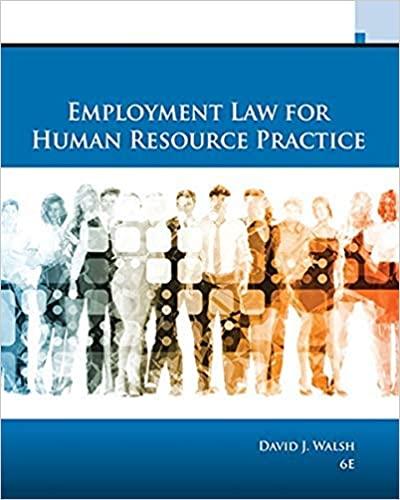Eclipse Aviation Corporation declared bankruptcy in November 2008, but reached an agreement to sell the company to
Question:
Eclipse Aviation Corporation declared bankruptcy in November 2008, but reached an agreement to sell the company to its largest shareholder, European Technology and Investment Research Center (ETIRC). If this agreement had closed, it would have allowed the firm to continue its operations. But the sale required significant funding from Vnesheconomban (VEB, a state-owned Russian Bank) for which prime Minister Vladimir Putin had to approve the funding, and the funding never materialized, despite daily assurances that funding was imminent. Eventually, the firm had to close. The employees filed in bankruptcy court, alleging that Eclipse had not complied with the WARN Act. The bankruptcy court ruled in favor of Eclipse, and appellants appealed to District court, which also found in favor of Eclipse. The employees then appealed to this appeals court, which affirms. [Note: Presumably, Varela Liquidation took over the assets of Eclipse Aviation and defended the firm’s actions in this suit.]
1. What were the legal issues in this case? What did the appeals court decide?
2. What does the WARN Act require regarding the contents of the notification provided to employees? How were these requirements met in this case?
3. What was the evidence that the employment losses in this case were caused by the failure to complete the sale of Eclipse Aviation? That the failure to complete the sale and subsequent Chapter 7 liquidation filing were not “reasonably foreseeable” business circumstances before February 24, 2009?
4. Why was the indefinite furlough notice provided to employees on February 18, 2009, not sufficient to satisfy the WARN Act’s requirements? Although this case is analyzed under the unforeseeable business circumstances exception, would the faltering business exceptions also apply? Why or why not?
5. Do you agree with the decision in this case? Why or why not? Does the “more likely than not” standard for determining whether business circumstances were unforeseeable make it too easy for employers to avoid providing notice? Why or why not? In applying this statute, which error is more important to avoid: informing employees about impending employment losses that do not materialize or failing to inform employees about impending employment losses that actually occur?
Step by Step Answer:






